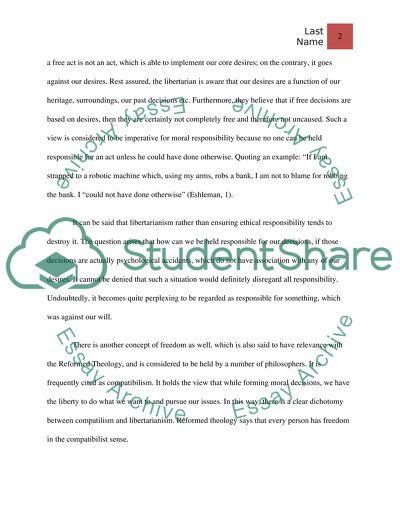Cite this document
(“What sort of freedom is required for moral responsibility Essay”, n.d.)
Retrieved from https://studentshare.org/philosophy/1429674-free-will-what-sort-of-freedom-is-required-for
Retrieved from https://studentshare.org/philosophy/1429674-free-will-what-sort-of-freedom-is-required-for
(What Sort of Freedom Is Required for Moral Responsibility Essay)
https://studentshare.org/philosophy/1429674-free-will-what-sort-of-freedom-is-required-for.
https://studentshare.org/philosophy/1429674-free-will-what-sort-of-freedom-is-required-for.
“What Sort of Freedom Is Required for Moral Responsibility Essay”, n.d. https://studentshare.org/philosophy/1429674-free-will-what-sort-of-freedom-is-required-for.


